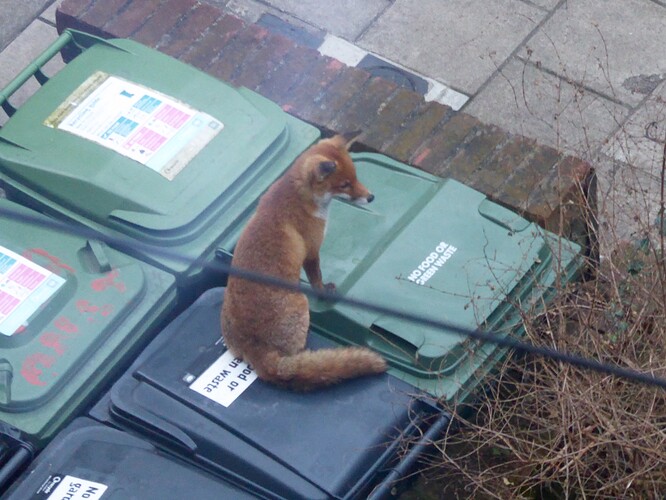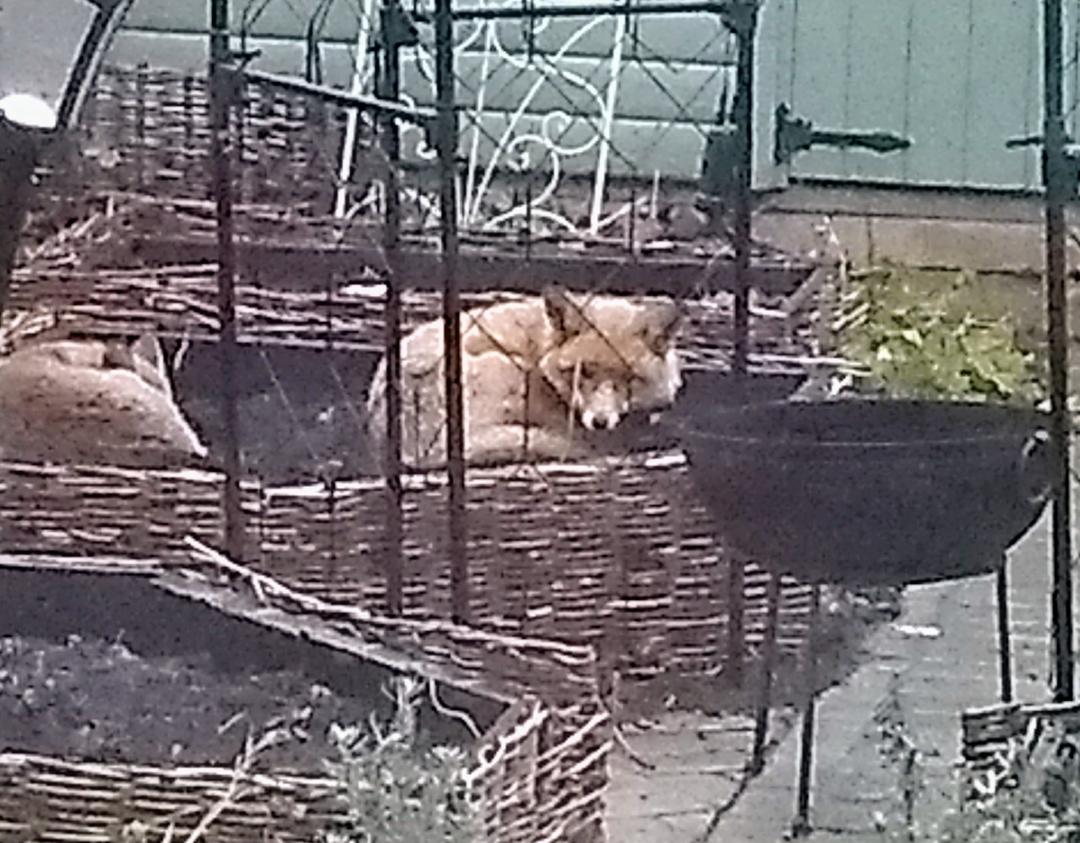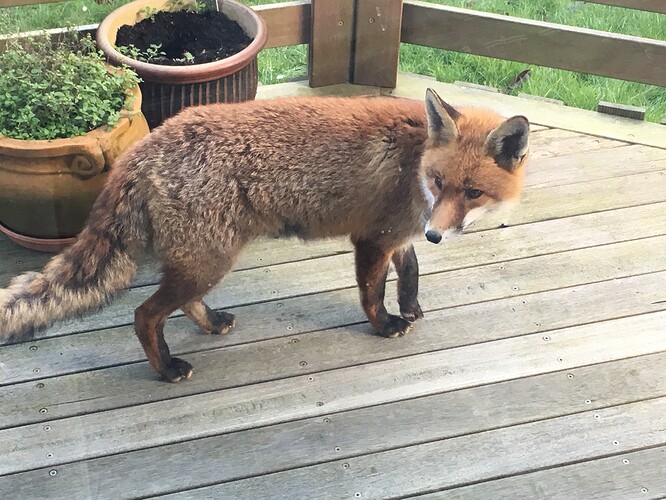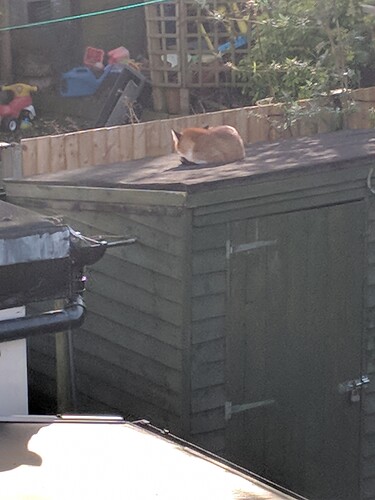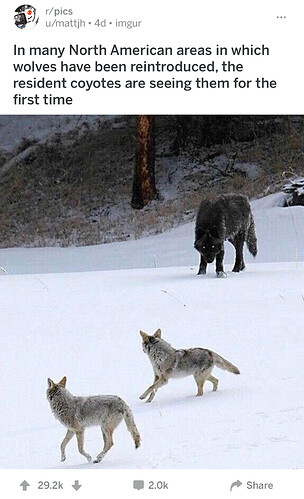Urban tails in Forest Hill


I can see this becoming Chris’ favourite thread 


Love them or hate them. I love them, they are here and that’s that. We have fox cubs in our garden every year and its such a pleasure to watch their antics.

They haven’t always been here though:

Indeed, but unless you have a TARDIS that’s not going to change now.

I bet there is a similar entry on Foxypedia which talks about the human colonisation of London. Which came first?
I think it is like most other things, things that were there first have a right to at least remain in co-existence with what comes next.
Of course, human habits don’t help the cause. Strangely I don’t get them in my garden. Hmmm. Nor cats lol.

Mosquitos? Bubonic plague?

Hmm I think the plague is a little far fetched. I can’t say I have seen it walking around local woodlands in recent years. Not seen a plague nest in decades.
Mosquitos… You have a plan to eliminate them? Another of lifes little annoyances. But again, not quite the same thing.

I know a man that does:

There are also people who want and plan to eliminate cancer, world poverty, the homeless crisis and so on.
We are talking about urban foxes here, let’s not get side tracked.
You don’t like them, I get that. Many don’t.
People who feed them irritate many of us.
Sadly, just like rats, foxes thrive on humans poor habits. Blame humanity for their success.

Given huge swathes of Forest Hill were built during the very late Victoria period, through the Edwardian and into the 1930s there isn’t a lot in it.

Urban foxes are helpful to keep down the levels of rats and feral wellies. If foxes are becoming too successful then a good solution would bring in another predator that can take care of the foxes - I think wild leopards roaming the streets are probably the answer.

I hear there is an increase in cougars, would that help? lol

Un-PC Starman is ROFL inside. PC Starman is reaching for the flag.

I may have let the cat out of the bag…

Now, please forgive me, by Un-PC me added an R in there for a moment!!

Haha, yes - if only.
Realistically, cars serve as fox control. 60% of urban foxes die every year, of which half are killed by cars. The other half die from sarcoptic mange, a disease which is widespread amongst foxes.
That’s the reality of us encouraging foxes into cities. Those who care about animal welfare would surely avoid feeding them, and would not encourage them into urban gardens.

I’m still a fan of foxes, but I’m a bigger fan of leopards.

While wide spread, mange also seems to be on the decline. Certainly from what I see on the streets anyway. I have grown used to seeing skinny, tatty foxes over the years. However recently there seems to be an increase in very healthy ones, beautiful some might say 
As for feeding and encouraging. Feeding, no, there is no need for it really, they do just fine without it.
Encouraging them however, well I don’t think they need much of that. With the scent of other animals around, left over food left out for pets etc, they love a romp around any garden which suits, not just ones they are encouraged towards.
This speaks volumes.
Must urbanites live in fear?


I’m actually scared of foxes & on the occasions I have seen them locally it really freaks me out.
Probably didn’t help having one a few years ago in my garden with lots of cuts & open wounds, apparently this is some kind of condition?
Happy to see a leopard any day of the week 


It may be mange - sadly there are a couple of foxes suffering from it behind our garden. Thanks to another poster on this site (sorry I’ve forgotten who) we have got in touch with these guys: http://www.nfws.org.uk/mange/mange01.htm

Basil brush looks magnificent. I just love the blood curdling screams of the vixen, feel like I’m way out in the sticks in a wee log cabin.

Foxes just love sunbathing on shed roofs.

 the answer is staring you in the face there. Shame on @Michael for suggesting the introduction of an alien species.
the answer is staring you in the face there. Shame on @Michael for suggesting the introduction of an alien species.
Wolves. Our ancient top predator (though I admit there were lions and bears too).


Then maybe we should accept the resident fox population as a positive sign. For if there be foxes there is unlikely to be lions and tigers and bears. Oh my.

Yes, and taking a serious point from this, they are also the local top predator in their niche. Whether you like them or not, the fact that they are around means that there is lots of other wildlife to enjoy.
I like them and used to look forward to going to the countryside and trying to spot them (much more shy there due to farmer with his gun). It tickles me that they have saved me the journey. I actually haven’t seen a rural fox in a long time.
